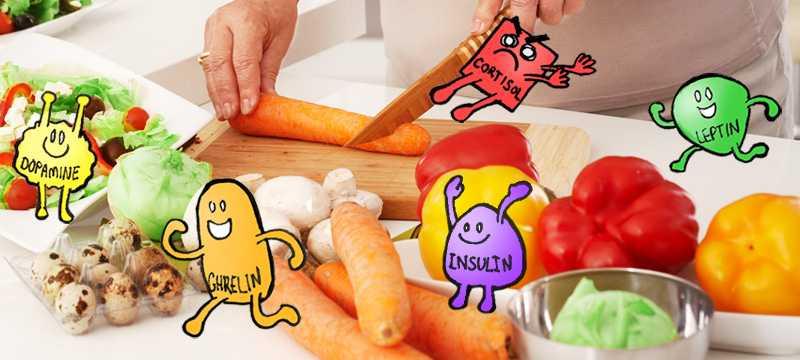Learn more about health with this collection
The role of coffee in social interactions
Different types of coffee and their preparation
The impact of coffee on society and economy
Hormones control our food intake
We all need food to generate energy. Our body uses hormones that circulate in the blood to control our food intake.
Hormone levels change when we lose weight and are also the reason why most of us will regain the weight we lose.
59
593 reads
The hypothalamus controls the sensation of hunger
The hypothalamus coordinates the body's system that regulates food intake.
- The hypothalamus contains nerve cells that produce the sensation of hunger when activated. They do so by making two distinct proteins that cause hunger.
- Close to these nerve cells is another set of nerves that inhibit hunger. They also produce two proteins that inhibit hunger.
Whether you feel like eating depends on the balance of the activity between these two sets of neurons.
49
261 reads
Hormones in the blood
- The Ghrelin hormone is made in the stomach and released as the stomach empties.
- Insulin-like peptide 5 is another hormone that stimulates hunger but is produced in the colon.
- Cholecystokinin (CCK) is produced in the upper small bowel soon after food reaches it and gives a feeling of fullness.
- Peptide YY, glucagon-like peptide 1 (GLP-1), oxyntomodulin and uroguanylin make us feel full. They are made from the last part of the small bowel.
- Leptin is an appetite-suppressing hormone and made in fat cells.
- Amylin, insulin and pancreatic polypeptide are made in the pancreas.
59
310 reads
How weight loss affects our hormones
Studies found that diet-induced weight loss is associated with hormone changes that promote weight gain.
After weight loss, leptin levels will decrease. But ghrelin, GIP and pancreatic polypeptide will increase in circulation while PYY and CCK will lower. Most of these changes favour regaining lost weight. These hormonal changes seem to be present for at least one year after weight loss, leading to a constant increase in hunger.
52
375 reads
CURATED BY
Passionate tv nerd and lifelong web junkie. I love sleeping. Sleeping is a science and I study it.
More like this
15 ideas
11 Effects of Sleep Deprivation on Your Body
healthline.com
3 ideas
Why sleep is so important for losing weight
theconversation.com
5 ideas
Read & Learn
20x Faster
without
deepstash
with
deepstash
with
deepstash
Access to 200,000+ ideas
—
Access to the mobile app
—
Unlimited idea saving & library
—
—
Unlimited history
—
—
Unlimited listening to ideas
—
—
Downloading & offline access
—
—
Personalized recommendations
—
—
Supercharge your mind with one idea per day
Enter your email and spend 1 minute every day to learn something new.
I agree to receive email updates

